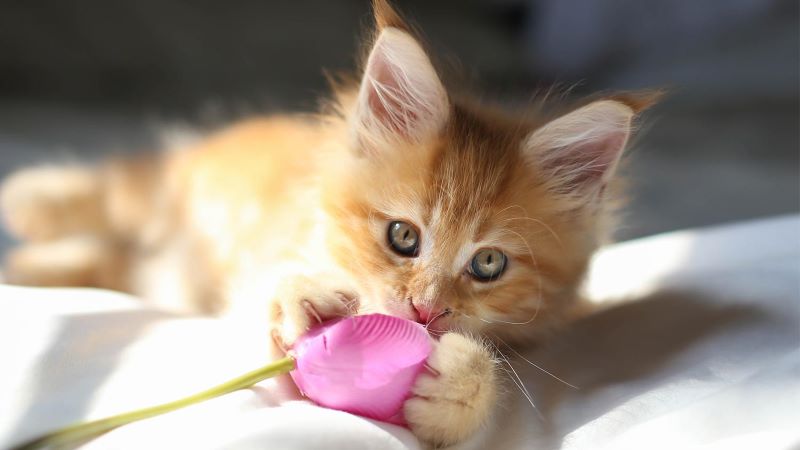In honor of Happy Healthy Cat Month, let’s talk kitten health. You’ve already fallen in love with that little ball of fluff, passed a breeder or adoption screening, and brought your kitten (or two) home! You want to keep your kitten lively and active so you can celebrate many more happy, healthy cat months together! Aside from feeding your young cat a healthy diet, there are some common illnesses you should be aware of so that you can be prepared to provide the very best, in sickness and in health.
Feline Distemper
Cats of all ages can contract distemper, but kittens are especially vulnerable because they may be too young to receive the distemper vaccination. For this reason, it is important to stay on top of regular vaccinations at your vet. PetPartners wellness plans can offset some of your costs by allowing you to work with your veterinarian to choose which vaccinations are best for your pet. Distemper is a difficult illness to treat but is luckily very rare. This disease attacks the immune system and causes vomiting, diarrhea, and lack of appetite. Kittens often must be hospitalized and isolated, so they do not transmit the virus.
Upper Respiratory Infections
Just as you pass a cold along to your friend, cats can pass along upper respiratory infections to each other. The bacteria or virus is passed when a cat sneezes or exhales. If your kitten is sneezing, has discharge from his eyes, and or has a runny nose, chances are he has what we would think of as the common cold. But these infections are not to be taken lightly, especially in a young cat. Dr. Tony Johnson DVM, calls these types of infections “kitten killers”. He warns they are especially dangerous to a kitten who is only a few weeks old, and professional advice should be sought as soon as symptoms begin.
Intestinal Worms
This is another illness that can be avoided with proper preventative care. PetPartners wellness plans can help here too by reimbursing a portion of the cost of deworming, which is important to begin at 8 weeks of age. Roundworms, hookworms, and whipworms are examples of worms that can burrow in the intestine and cause diarrhea. Symptoms your kitten may have worms include weight loss and loose stools. According to Dr. Johnson, the vet “carries the good stuff,” so you may want to enlist your doctor’s help instead of using over-the-counter deworming products. It is also important for your vet to examine a stool sample to be sure of the kind of worm he/she is treating. Recovery from worms can take up to two weeks and it is common for a kitten who has been dewormed to relapse. It is important to clean your cat’s litter box frequently.
Happy, Healthy Cat Month
Happy Cat Month is a month to celebrate the happy cats and kittens in our lives. We all know that a healthy cat is a happy cat! Knowing the signs and symptoms of these common diseases can help you detect and treat early, so your kitten has a better chance for a quick recovery. There are many reasons your cat needs pet insurance, but the top reason is to ensure you can afford to give your cat the best veterinary care available!

